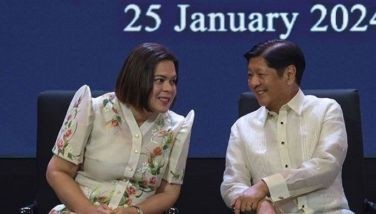Safeguards

We need some urgent refining of policy on the matter of online gaming.
When the national government decided to ban POGOs last year, local governments went to town banning all forms of online gaming. While doing so is allowed under the Local Government Code, it threatens the viability of the online gaming industry.
August last year, the Pasig LGU shut down all e-bingo and other e-games operations in the city. This happened as POGO operations in the locality were banned.
Pasig Mayor Vico Sotto decided online bingo gaming “brings no good to our society.” It fostered gambling addiction. A number of suicides were attributed to gambling addiction.
Manila 6th District Rep. Benny Abante demanded that all online games that target Filipino customers such as virtual poker, casinos, sports betting and e-bingo be banned along with the POGOs that cater to a foreign clientele. He quotes “scientific studies” that show pathological gamblers engage in destructive behavior. As they run up large debts, they destroy family relationships.
Quezon City passed Ordinance No. 2285 that regulates e-games, including e-bingo and “other games of chance.” The ordinance states that “any form of gambling is considered detrimental to the state policy of protecting the Filipino family because gambling diverts precious (family time).”
Naga City, for its part, passed an ordinance imposing a moratorium on e-bingo. The city government “considers gambling inimical to the interests of the people. Habitual gambling, in fact, is a cause of laziness and ruin.”
While local governments may prohibit online gaming, enforcement may be problematic. Online gambling does not require physical betting locations and can therefore defy the boundaries of local governments.
Over the past few years, emerging financial technologies that enable people to bet through their phones caused a boom in online gaming. Among the more significant of these involved betting online on cockfights using GCash or Maya. The surge in online gaming was driven during the pandemic with all the restrictions imposed on mobility.
Capstone-Intel Corporation, a data research group, reports that as of May 2023, 32 percent of Filipino women engage in online bingo. About a third of the respondents who are into online betting engage in online bingo. More women engage in online bingo because it is easy to play and betting costs are low.
Filipinos have been gambling on numbers games for generations. This is why “jueteng” and “masiao” betting networks proliferated. The availability of online betting facilitated by new financial technologies created new gambling networks with a broader reach.
DigiPlus Interactive Corporation, operator of the online bingo streaming platform BingoPlus, reports that as of April 2024 it had 20 million players, mostly in the NCR. By this time, the company expects to add another 5 to 10 million users of its online bingo and gaming platforms.
The exponential growth in online gambling is attributable to the high degree of smartphone penetration in the country. This makes the gambling apps more accessible. A number of celebrities endorsing online gambling adds to the exponential growth. The popularity of e-bingo is a main driver of growth.
PAGCOR is, of course, a beneficiary of the rapid growth of online gaming. Through its licensing operations, the state gaming regulator earned P6.56 billion in net income for the first half of 2024 alone. Gross gaming revenues for the first half of 2024 amounted to P194.743 billion.
The state gaming regulator proudly declares: “PAGCOR’s robust net income growth translates of course to a larger Contribution to Nation-Building (CNB). We were able to remit P31.82 billion in CNB to the Treasury in the first six months (of 2024) compared to P22.62 billion in the same period (of the preceding year).”
The growth in online gambling is surely explosive, mainly attributable to the popularity of e-bingo.
We all know what traditional bingo is. It is a numbers game traditionally used to help raise funds for local governments, NGOs and even church-based groups to raise funds for community projects. Outside of parlor games played at home, however, bingo needs to seek permission from the state gaming regulator. PAGCOR has an entire Bingo Department to accredit bingo events. Without PAGCOR accreditation, organizing such games falls into the definition of illegal gambling.
Electronic bingo gaming is defined as a game of chance using electronic gaming systems with bingo-styled cards generated by a Random Number Generator (RNG) and displayed on an electronic screen. Betting is done through any of the available payment apps.
In a word, this is bingo on an industrial scale using the ease of payment allowed by modern financial technologies and the real time assurance of real-time screening. Organizing an e-bingo operation requires some amount of capital and eventually the assurance of fairness.
Given the investments they have made in setting up their betting networks, gaming operators want the state gaming regulator to adopt clearer policies that will ensure the investments are viable and the criticisms of online gambling properly addressed.
Some critics of online gambling have offered extreme requirements such as bettors first getting police clearances to join. This is operationally impossible.
Instead, our gaming regulators should be able to creatively craft new regulation that assures that no e-bingo addiction happens or that e-wallets are not abused by compulsive bettors. There should be a way to restrict minors from participating. Limits can be electronically set on how many hours a week gamers can participate on all gaming platforms.=
- Latest
- Trending




























